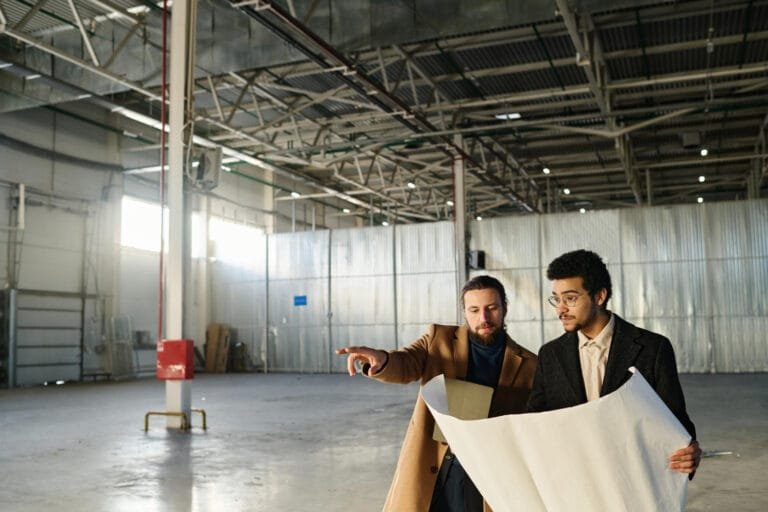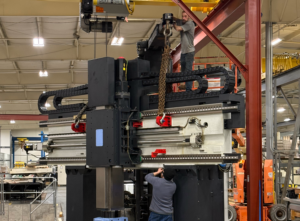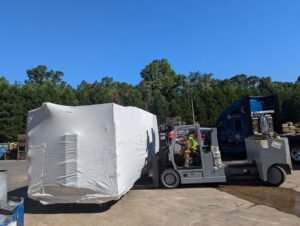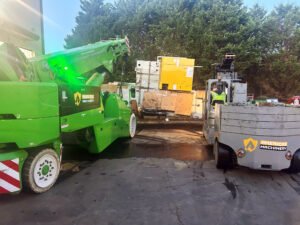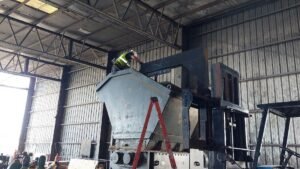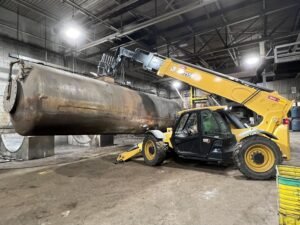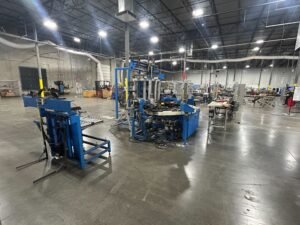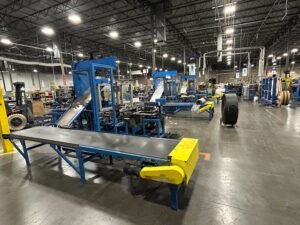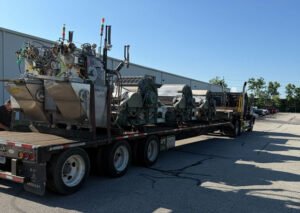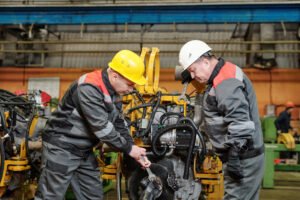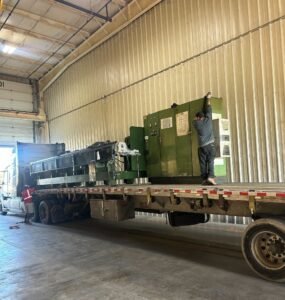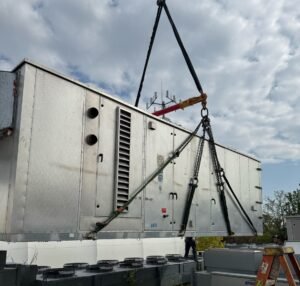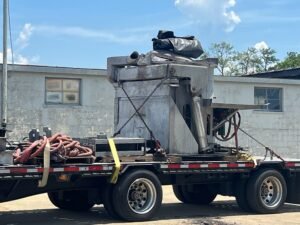Factory relocation is a complex and often challenging task. It involves the movement of heavy machinery, equipment, and sometimes entire production lines. The success of such a move depends largely on the expertise and professionalism of the movers involved. Selecting the right heavy equipment movers can ensure that the relocation process is efficient, timely, and causes minimal disruption to your operations.
In this comprehensive guide, we will explore how to find the best heavy equipment movers for factory relocation. We will cover key factors to consider, common challenges during a factory move, and how to assess a company’s reliability and track record.
Understanding the Importance of Specialized Movers
Relocating a factory isn’t just about moving large objects from point A to point B. It involves a series of intricate tasks, including disassembly, transportation, reassembly, and ensuring that the equipment remains functional throughout the process. Heavy equipment movers need specialized knowledge and tools to handle these tasks. Here are a few reasons why specialized movers are essential:
- Heavy Lifting Expertise: Most factory equipment is not only heavy but also delicate. Improper handling could result in damages, leading to expensive repairs or replacements. Professional heavy equipment movers have the right tools and expertise to ensure the safe relocation of equipment.
- Compliance with Industry Standards: Factory equipment movers must adhere to safety and industry regulations during the move. This includes compliance with transportation laws and occupational safety standards, which are crucial to avoid legal complications.
- Efficient Project Management: Specialized movers understand that factory relocations are time-sensitive. A delay in moving equipment could lead to significant downtime, affecting production schedules and profitability. Experienced movers can execute a move while minimizing downtime.
Key Factors to Consider When Choosing Heavy Equipment Movers
To ensure a successful factory relocation, selecting the right movers is crucial. Below are some of the key factors to consider:
- Experience and Expertise: The most important factor when choosing heavy equipment movers is their experience and expertise in handling factory relocations. It’s essential to select a company with a proven track record in moving heavy machinery and factory equipment. The more experience the company has, the better equipped they are to handle the complexities of the task. Check whether the movers have experience in handling specific types of machinery relevant to your factory. Some movers specialize in certain industries (e.g., automotive, pharmaceuticals, food processing) and may be better suited for your needs.
- Licensing and Insurance: Before you hire a moving company, ensure they are fully licensed and insured. This is critical for protecting your business from liability in case of accidents or damages during the move. Verify that the company has the appropriate permits and insurance coverage for moving heavy machinery and that their team is qualified to operate the necessary equipment.
- Customer Reviews and Testimonials: A reputable moving company will have a history of satisfied customers. Online reviews and testimonials can provide valuable insights into the company’s professionalism, reliability, and ability to complete projects on time. Look for detailed reviews that mention factory relocations specifically, as this will give you a clearer picture of their competence in this area.
- Equipment and Resources: Heavy equipment movers should have access to specialized tools, vehicles, and lifting machinery required for the job. This includes cranes, forklifts, and rigging equipment. A company with up-to-date and well-maintained equipment is more likely to execute the relocation smoothly and safely.
- Project Planning and Communication: Effective project management is critical for a successful factory relocation. The movers you hire should offer a clear plan, including timelines, logistics, and milestones. They should also maintain open lines of communication throughout the project, ensuring that you’re updated on progress and any potential delays.
Common Challenges During a Factory Relocation
While factory relocations can bring about many opportunities, they also come with challenges. Being aware of these challenges can help you plan better and ensure a smoother move. Some common issues include:
- Downtime and Production Losses: The longer the relocation process takes, the more downtime your factory will experience, potentially resulting in lost revenue. Skilled heavy equipment movers aim to minimize this by working quickly and efficiently.
- Machinery Damage: Heavy equipment is often sensitive and expensive. Improper handling during relocation can lead to significant damage, affecting functionality. Choosing experienced movers can mitigate the risk of damage.
- Logistics Coordination: Moving heavy equipment over long distances, especially internationally, can be logistically complex. Dealing with customs regulations, permits, and transportation laws adds layers of complexity to the process.
- Reassembly Issues: Once equipment arrives at the new location, it needs to be reassembled and tested. Errors in reassembly can result in malfunctioning machinery. Professional movers will ensure everything is reassembled and in working order.
Steps for a Successful Factory Relocation
By following these steps, you can ensure a smoother, more efficient factory relocation process:
- Assess Your Relocation Needs: Before hiring movers, assess the full scope of your factory relocation. This includes the types of equipment that need to be moved, the distance of the relocation, and any special requirements (such as climate-controlled transportation or disassembly).
- Develop a Relocation Plan: Create a detailed relocation plan outlining the timeline, necessary resources, and a step-by-step process for the move. Involve key stakeholders in this planning phase to ensure that every aspect of the relocation is covered.
- Budget for the Move: Relocating heavy equipment can be costly, so it’s important to create a budget and get accurate quotes from different movers. Consider not only the cost of the move but also any potential downtime and the cost of reassembly.
- Hire the Right Movers: Once you have a plan and a budget, it’s time to hire the right heavy equipment movers. Look for companies that align with the factors mentioned earlier (experience, licensing, equipment, etc.). Get a detailed contract that outlines the scope of work, costs, and expected completion timelines.
- Oversee the Move: While the movers will handle the logistics, it’s still important for you to oversee the relocation process. This ensures that the project stays on track and any issues that arise are addressed promptly.
- Reassemble and Test the Equipment: Once the equipment has been moved, the movers will typically reassemble it. Make sure that all machinery is tested and functioning before you sign off on the project.
Why Alltracon is a Reliable Partner for Heavy Equipment Moving
When it comes to factory relocation, choosing the right partner for heavy equipment moving is crucial. One company that stands out in this field is Alltracon, known for their professionalism and reliability in handling large-scale relocations.
Alltracon has years of experience in the heavy equipment moving industry, making them a trusted name for businesses seeking efficient and safe factory relocations. Their team is equipped with advanced lifting and rigging equipment, ensuring that even the heaviest and most delicate machinery is handled with care.
One of the things that sets Alltracon apart is their commitment to safety and adherence to industry regulations. They follow strict safety protocols to ensure that all moves are conducted without any incidents, minimizing the risk of damage to machinery or injury to workers. Additionally, Alltracon carries comprehensive insurance coverage, giving clients peace of mind knowing that their valuable equipment is fully protected.
Alltracon’s project management skills are top-notch, with a focus on minimizing downtime during relocations. They work closely with clients to create detailed project plans, ensuring that every aspect of the move is executed smoothly and on time. This makes them an ideal partner for factory relocations where time is of the essence.
In terms of customer service, Alltracon has a reputation for maintaining clear and open communication with clients throughout the entire moving process. Their team is responsive, addressing any concerns that may arise and providing updates on the progress of the move. For businesses looking for a reliable and professional partner for heavy equipment moving, Alltracon is a company that delivers consistent results.
Tips for Minimizing Downtime During a Factory Relocation
Downtime during a factory relocation can lead to substantial financial losses. However, with careful planning and execution, you can reduce downtime and get back to full operational capacity as quickly as possible. Here are some tips:
- Schedule the Move During Non-Production Hours: Whenever possible, schedule the move during non-production hours or slower periods. This minimizes disruption to your normal operations and helps you maintain production output during the relocation process.
- Stagger the Move: Rather than moving all equipment at once, stagger the relocation in phases. This allows parts of the factory to remain operational while other sections are being relocated.
- Use Backup Equipment: If possible, use backup equipment to maintain production while the main machinery is being moved. This allows for continued operation, even if at reduced capacity.
- Pre-plan Equipment Reassembly: Ensure that the reassembly team is ready and available as soon as the equipment arrives at the new location. This can speed up the setup process and reduce downtime.
How to Assess the Cost of Factory Relocation
The cost of factory relocation can vary significantly depending on factors like the distance of the move, the amount and size of equipment, and the complexity of disassembly and reassembly. Here are some ways to assess the cost of your factory move:
Get Multiple Quotes
Reach out to several heavy equipment moving companies for quotes. This will give you an idea of the going rate for services and help you choose a company that fits within your budget.
Factor in Downtime Costs
When calculating the cost of the move, consider the impact of downtime on your business. This can include lost production and potential penalties for not meeting deadlines.
Consider Special Requirements
If your factory has specialized machinery that requires climate-controlled transportation, extra care during disassembly, or special permits, this can increase the cost. Be sure to discuss any special requirements with the moving companies to get an accurate quote.
Budget for Contingencies
No matter how well you plan, unexpected challenges can arise during a factory relocation. Set aside a contingency fund to cover any unforeseen costs, such as equipment repairs or additional labor.
Conclusion
Relocating a factory is a complex and often daunting task, but with the right heavy equipment movers, the process can be smooth and efficient. By considering factors like experience, licensing, customer reviews, and equipment, you can select a reliable moving company that will handle your relocation with care.
Companies like Alltracon stand out as reliable partners for such tasks, offering expertise, safety, and professionalism in every project they undertake. By following the steps outlined in this guide and selecting the right movers, you can ensure a successful factory relocation with minimal downtime and maximum efficiency.
